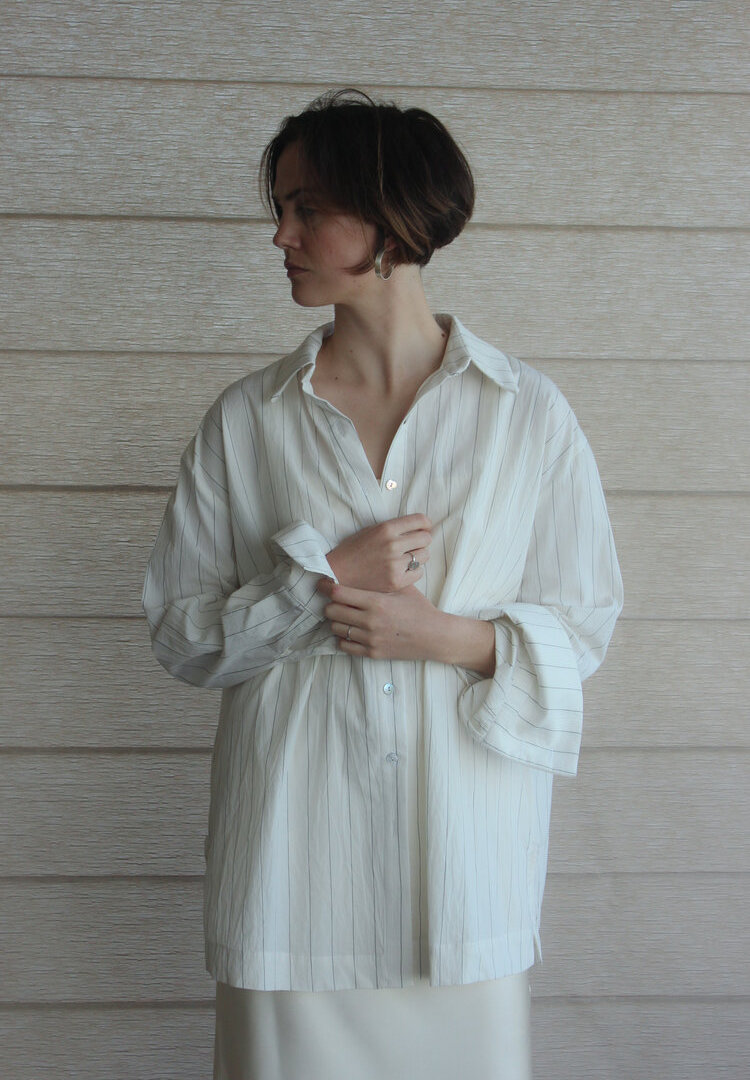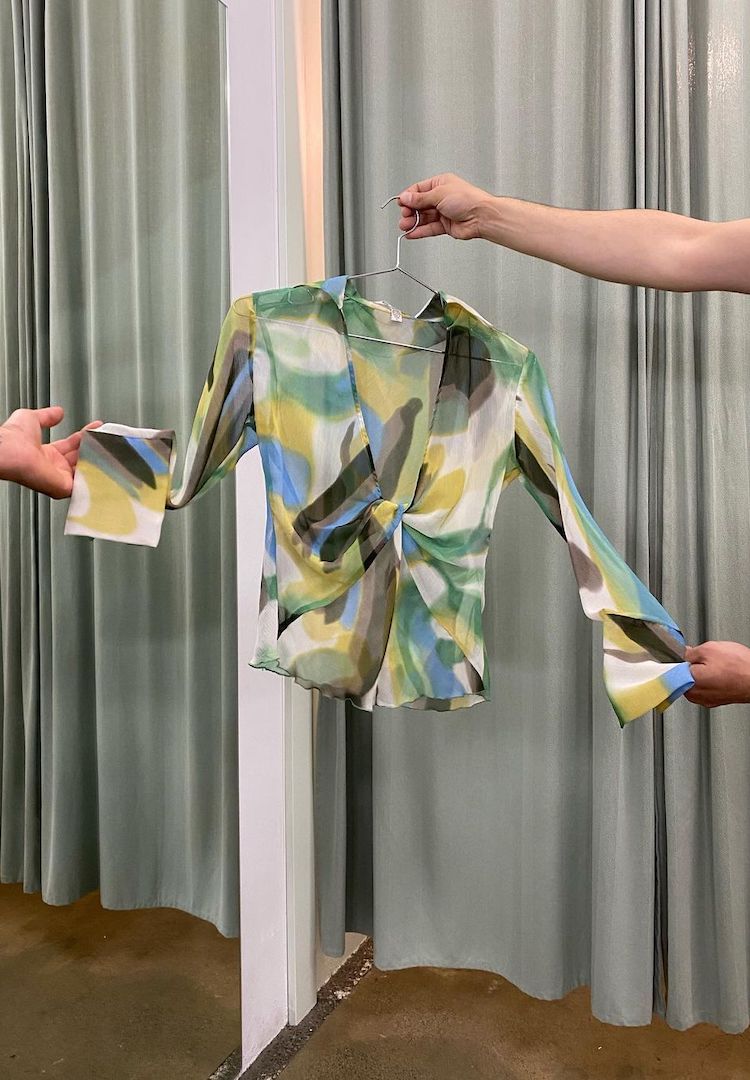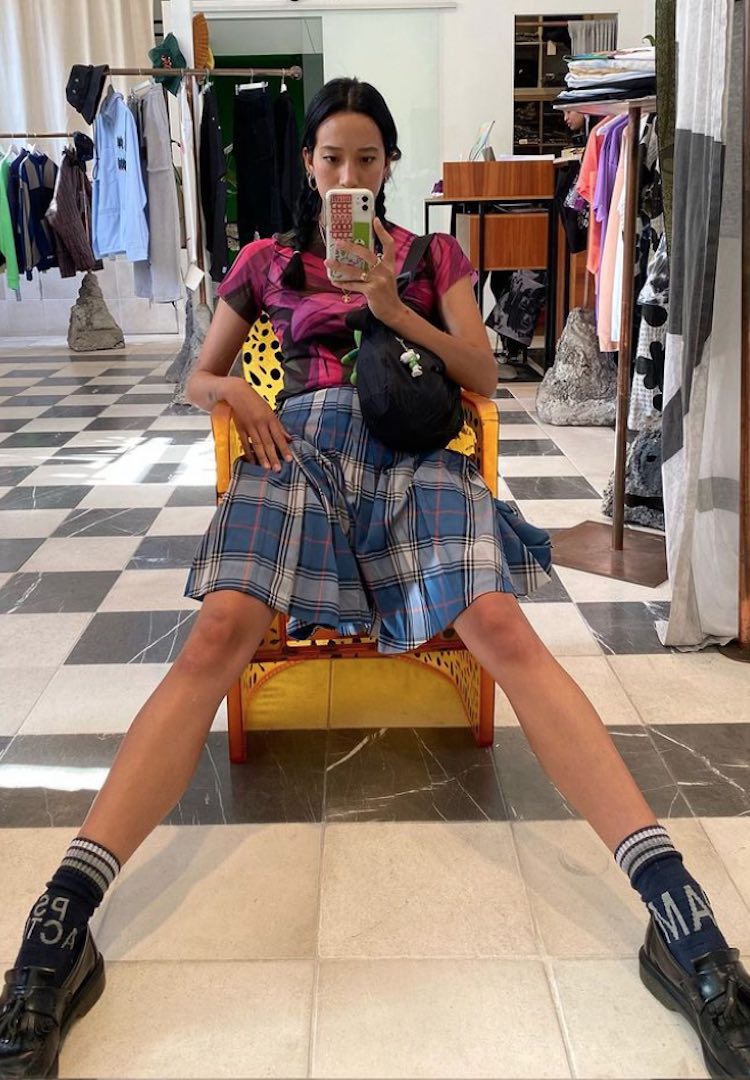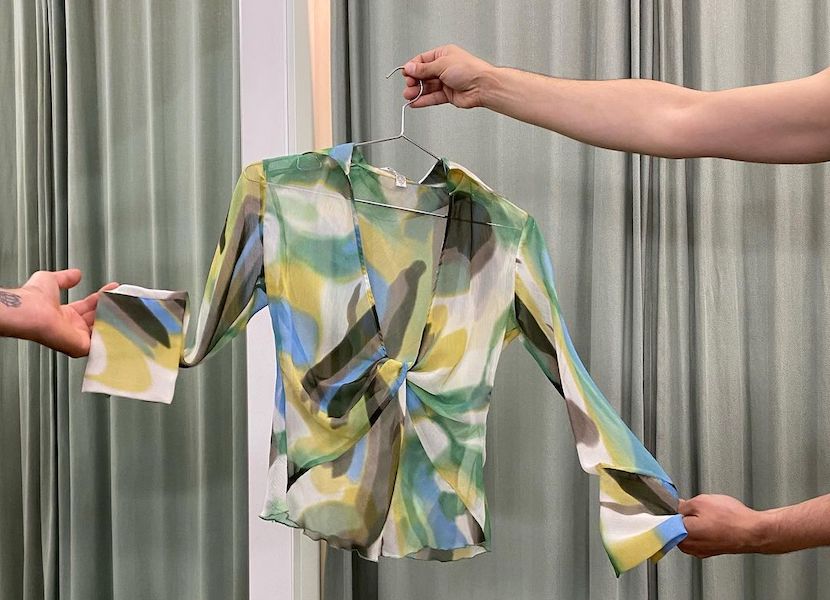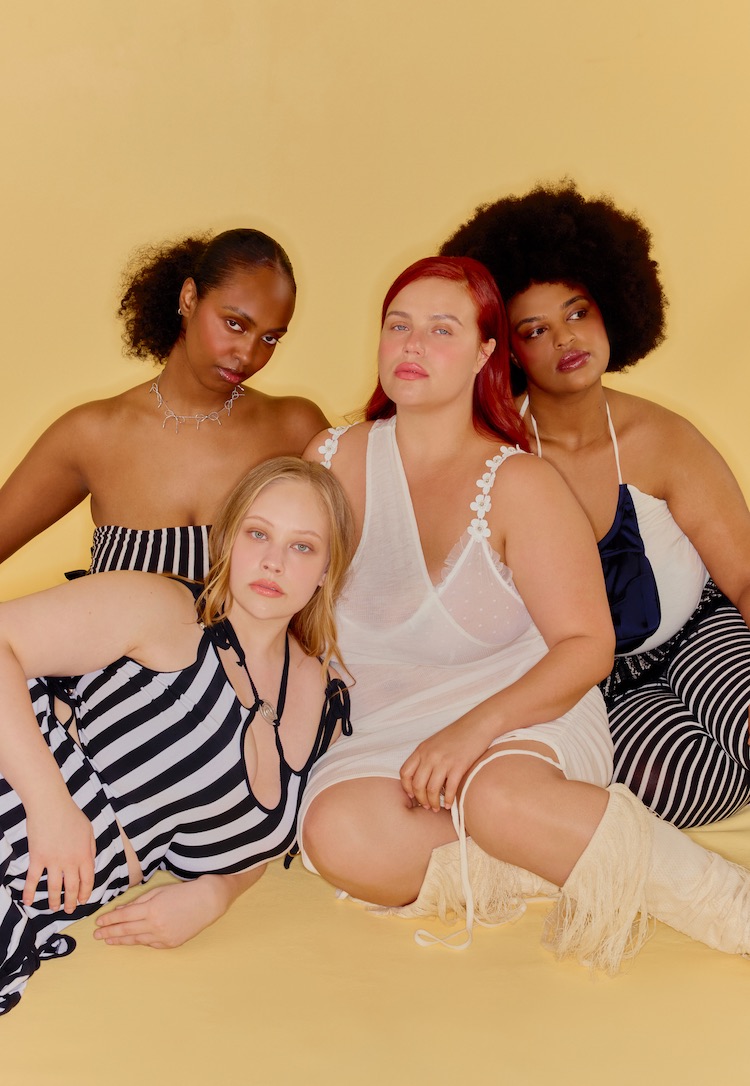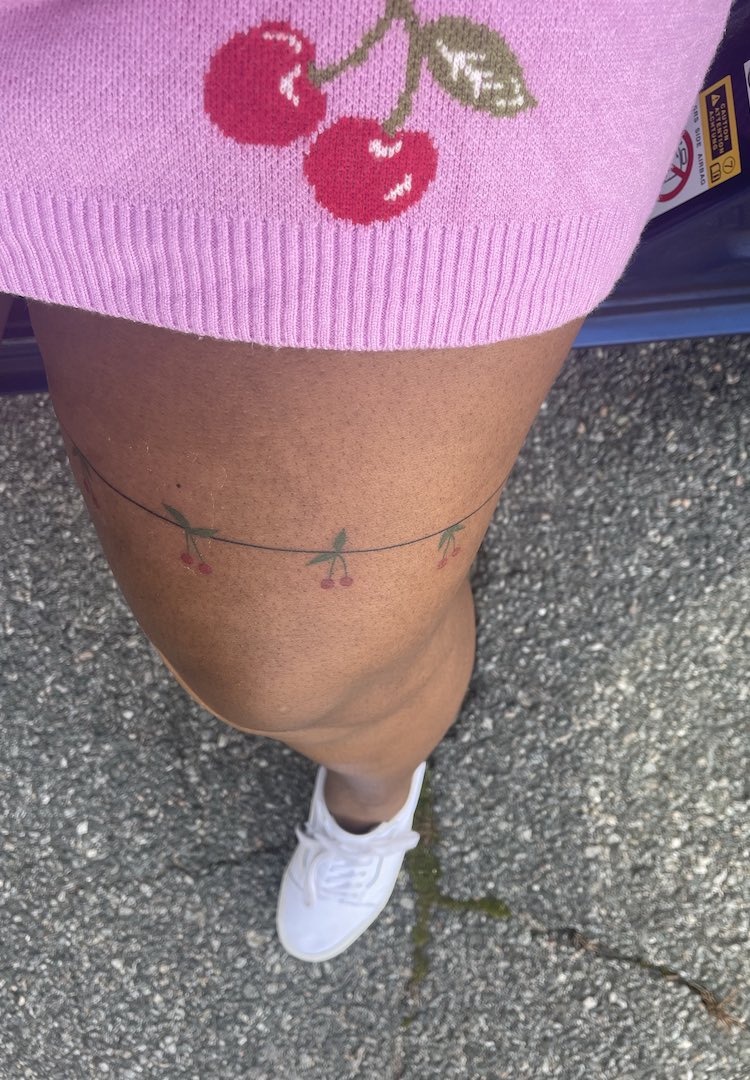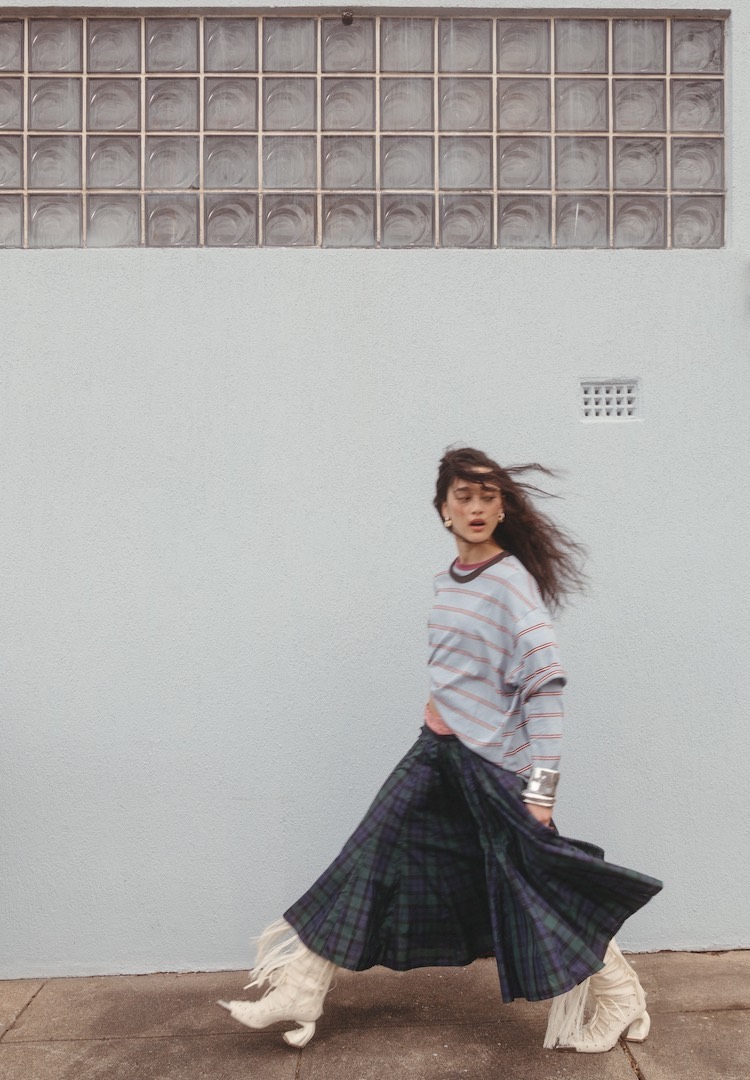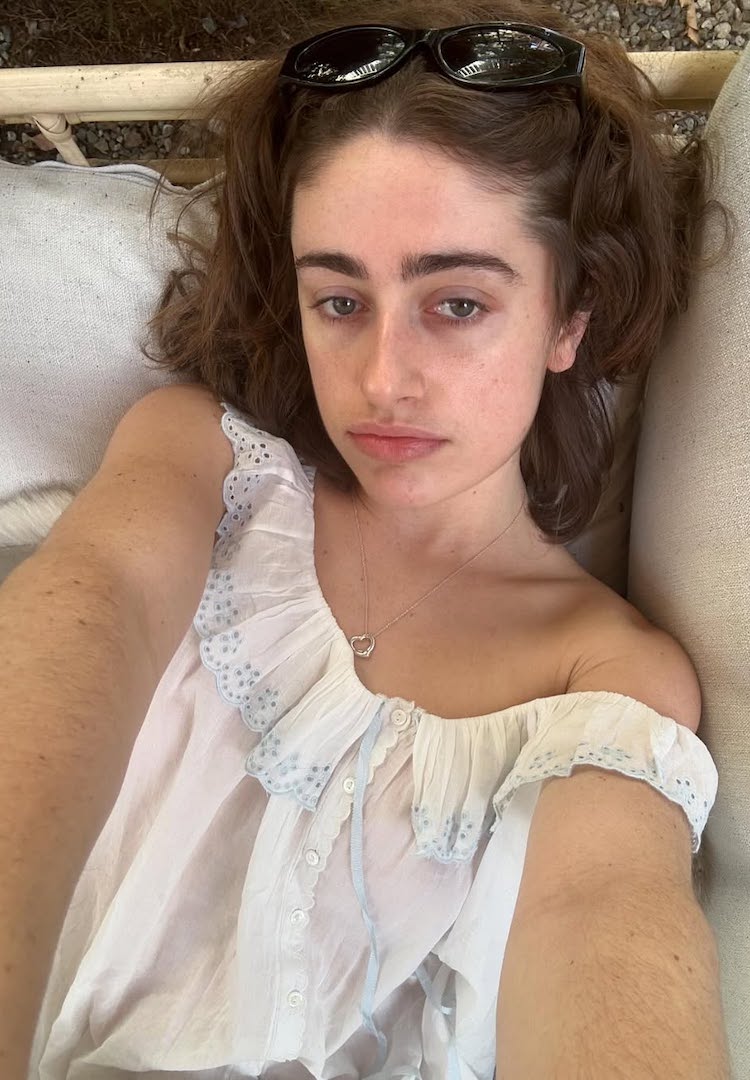Hear Me Out: Is ‘age appropriate’ dressing an inherently sexist concept?
IMAGE VIA @GOODBYES/INSTAGRAM
WORDS BY IZZY WIGHT
It’s time to abolish ‘mutton dressed as lamb’ from our lexicon.
Fashion is easy to love until it doesn’t love you back. Following the honeymoon period (those years where your wardrobe really flourishes), there’s an inevitable pulling away; a feeling of disconnect after you’ve finally allowed yourself to be vulnerable. Fashion sees your flaws and wants someone younger, slimmer and shinier. It becomes an unrequited love.
Since moving away from home six years ago, my mum has sent me at least one outfit mirror selfie per week. I started by responding with photos of my gross student meals – figuring it was a show-and-tell activity – until I realised she was looking for advice. ‘Is this okay for work?’ she’d ask, posing in an above-the-knee length wrap dress and sandals. ‘Or does this look ridiculous?’
Interested to hear how others navigate the world? Head to our Life section.
I’ll admit, 18-year-old me thought this was a little dramatic. How could a dress and sandals look ‘ridiculous’? It wasn’t until I learned about society’s pervasive ageism issue that I understood my mum’s fear. The idiom ‘mutton dressed as lamb’ (a derogatory phrase describing an older woman dressing in a ‘younger’ fashion) is the perfect example of the ageing female fearmongering plaguing women over 40.
While society is inching closer towards age acceptance – spearheaded by beauty’s ‘pro ageing’ movement – it’s difficult to fight against a trope we’re hard-wired to believe. Dating back to BC years (the bible is a difficult story for females, let me tell you), the expectation for women to be ‘appropriate’ is ingrained in our collective psyche.
But why do older women feel condemned to a lifetime of modest cardigans, conservative heels and calf-length skirts? I asked the founder of the Australian Style Institute, Lauren Di Bartolo. “A career as a stylist has taught me that women feel pressure to dress in an ‘age-appropriate way’ throughout their lifetime. When we’re young we want to be perceived as cool, stylish and older; as we age we don’t want to become invisible, we want to be seen.”
A glaring lack of media representation also makes it difficult to find solace in women fighting against expectations. We’ve seen a slight push in the right direction (Judi Dench’s 2020 Vogue UK cover, the return of iconic ’90s supermodels at recent fashion weeks) but there remains a gaping void where cool, stylish, desirable older women should be – like TikTok stars Ginger and Carman.
View this post on Instagram
Melbourne-based friends Ginger and Carman gained social media traction for their fashionable city adventures (‘escapades’) and refusal to succumb to the ‘invisible older woman’ stereotype. “We have our own style,” the duo told me when I asked about their newfound internet popularity. “It’s not young, it’s not old – it’s about knowing our bodies, what we love and what works for us and our body shapes… we definitely need to see more women our age on runways, in fashion magazines and on TV that aren’t seen as nannas.”
Unsurprisingly, everything’s a little easier if you’re a male. A recent study published in Science Advances found that men’s desirability peaks at age 50, while women’s peaks at 18 and falls throughout their lifespan. For women, society’s ruling of an outfit’s ‘appropriateness’, is seemingly dictated by your size, age, race and general attractiveness. According to TikToker Phaith Montaya, plus-sized women are given an entirely different set of rules altogether.
“I’ll never forget – I was wearing one of those high-low skirts that were a big trend when I was in high school, and the back of the skirt was longer than the front, but apparently not long enough because an administrator pulled me aside,” she told Buzzfeed. “She was also plus-size, and she said, ‘Women like us can’t wear the same things as others because we have bigger behinds.’ I was filled with frustration and confusion because I was dress coded for something I couldn’t help.”
Women certainly can’t help ageing, either. And if it’s not the media or men, women feel judgement and pressure from other women, too. “Interestingly, a lot of the pressure women put on themselves when dressing comes from their perceptions of what other women might think and not others,” Lauren tells me. “It’s unconscious and unintentional, but the opinions of other women weigh more heavily than that of men when dressing, or so the numerous studies I’ve conducted over the years would show.”
View this post on Instagram
As easy as it is to tell you to ‘stop caring what other people think!’ (the most frustrating advice one can receive), years of social conditioning makes it difficult for us to peel our minds away from the patriarchy. “Ever asked yourself what a woman of a particular age should like? If an answer comes to mind, challenge it,” Lauren advises. “It’s probably an idea you picked up along the way growing up, but that doesn’t make it a fact.”
So maybe we can’t blame the world’s aversion to ageing women entirely on men – we all have a part to play. As Lauren pointed out, there are more pressing questions we should be asking ourselves. “The real question is, ‘When are women going to start embracing beauty in themselves and each other at all ages, sizes, shapes, forms and identities?’ Social conditioning dictates what’s appropriate; I think it’s fair to say it’s time we challenge that.”
To hear what other women have to say about getting older, head here.

